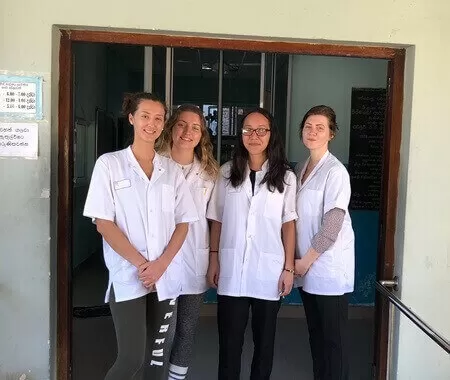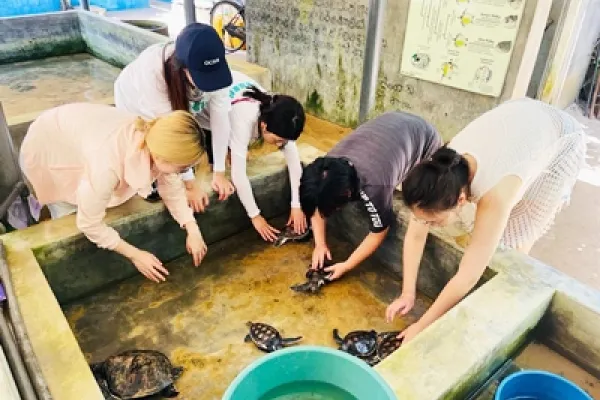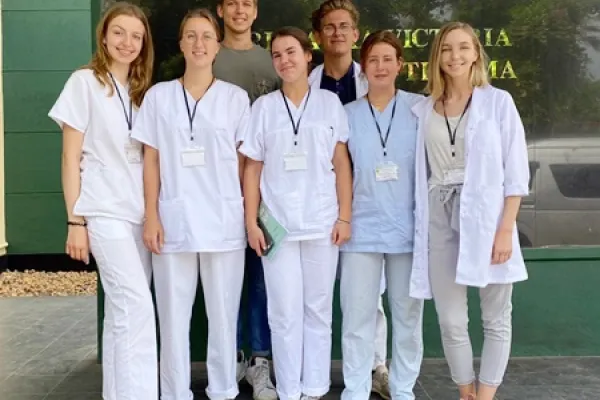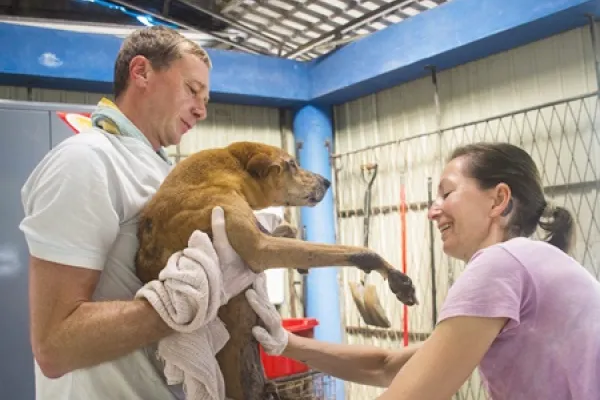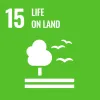Overview
The Pre-Medical Observership Program caters to participants who are not currently enrolled in a medical or nursing degree from a recognized university, but have some prior knowledge and/or experience in the healthcare sector.Participants who have no demonstrable experience or knowledge whatsoever in the healthcare sector cannot be enrolled in the program.
Sri Lanka is the only country in South Asia which offers free healthcare to all its citizens, which is remarkable for this region. As such, the public sector here is very well developed and much larger than the private sector. Participants working in the public sector have access to a larger and wider network of medical professionals, range and volume of patients and exposures to a comprehensive set of wards and special units that cannot come close to being matched in the private sector. There is also a greater need for future doctors and nurses to assist in the public sector as the sheer volume of patients they get is overwhelming and from lower socio-economic classes, where the need for support is greater.
Participants can expect to gain a broad-based understanding of how these sectors work through a range of observation-based learning experiences across various wards and units in a hospital and/or clinic setting, as well as through a range of community based activities. They also get to understand how the medical system of a developing country like Sri Lanka works and learn about various tropical diseases that are prevalent in this part of the world. Additionally, participants get to interact with local doctors and nurses to enhance their knowledge and skills.
Medical Students as well as recently qualified medical students looking to gain valuable experience and skills must select the Medical Internship Program in Sri Lanka. Nursing students looking to do a nursing elective must choose our Nursing Internship Program in Sri Lanka.
Sample Placement Profile
National Hospital Galle – this is the largest public hospital in the Southern Province of Sri Lanka, and the 3rd largest hospital in all of Sri Lanka. Capacity of ~2,000 beds. It has a total of 54 wards and several other specialized units. It was previously known as “Teaching Hospital Karapitiya” but has now been renamed as “National Hospital Galle” as the Sri Lankan government has recently elevated its status from a regional hospital to a national one.
Government Ayurveda Institute – this hospital specializes in the traditional medicinal practice of Ayurveda.
Community Projects – we work with various local schools and community organizations. Our students have the option to spend some of their time at these places for a more intimate experience working with children and senior citizens.
Schedule
Schedule
Saturday: Arrival in Colombo airport - transfer to Galle included
Sunday: Orientation + neighborhood familiarization tour. The orientation session will be conducted by the local coordinator, covering topic areas; such as safety, culture, language, places to visit, behavior, food, and other suggestions over things to do in and around Galle. The medical project coordinator provides project-specific training, which includes an overview of the Sri Lankan medical industry, common practices, customs, code of conduct, rules, etc. The coordinator also monitors day-to-day development of the participants and reviews and assigns project task sheets to each participant based on their experience level.
Mon to Fri: Observership placement at appropriate medical institution (schedules can be somewhat flexible by an hour or two either way, based on ground realities at the time)
• Breakfast - 06:30 to 8:30 am
• Working hours at the placement - 09:00 am to 1pm (Hours can vary)
• Lunch - 12:00-2:30 pm (Provided at the accommodation)
• Dinner - 6:30-7:30 pm onwards (Provided at the accommodation)
The same volunteer work schedule continues from the second week onwards
Weekends: Free to explore the city, all the nearby beaches and also travel around Sri Lanka. Being a small island with a very good public transportation system (buses, trains), it is easy to take weekend trip to the mountains, tea plantations, rainforests, cultural sites, various beach towns, etc.
Note: Please note, the schedule may vary depending on the particular project the volunteer is participating in.
Roles & Responsibilities
Roles & Responsibilities
Pre-meds can get broad-based rotational exposure across various wards, units and institutions as described below. They do not get to choose their ward or unit selection prior to arrival (unlike our Medical or Nursing Internship participants).The exact availability of each ward or unit can change from time to time based on ground realities, however, in general, pre-med participants will have access to rotate across the following wards, units and institutions:
Emergency Treatment Centre (ETC) – typical tasks include bedside teaching regarding patients’ management, ward class with ward rounds, checking vital signs of patients (if the staff permits), observing live surgeries in casualty operation theatre and post casualty theatre under the direct guidance of the surgeon. Students will be given explanations by the surgeon based on the type of surgery and the ground emergency situation.
General Surgical Wards– tasks include joining the ward rounds with the consultant and medical staff, assisting the medical staff for wound dressing, checking vital signs of patients and observing live surgeries such as Cholecystectomy, Appendectomy, Hernia repair, Thyroidectomy, etc.
Physiotherapy & Rehabilitation Unit – tasks include supporting patients to carry out their daily physiotherapy and occupational therapy exercises, carrying out group activities to support the patient's mental well-being and other similar activities. Participants will get to work closely with a physiotherapist and occupational therapist on a regular basis.
General Pediatric Wards – tasks include studying the history of the patients with the support of medical/nursing staff, joining the ward rounds, helping support mothers feed their children and performing activities to socialize with children (with parental consent).
Outdoor Patient Department – students are able to rotate between medical examining rooms, wound dressing room and vaccination rooms and observe how the outdoor patient department works in Sri Lanka.
Oncology Surgical Ward – tasks include studying the history of the patients with the support of medical/ nursing staff, joining the ward rounds, observing how local staff monitor vital signs, perform wound dressings of patients and observing pre-operative and post-operative care of the patients who go through surgeries.
Ayurvedic Medicine – A special introductory session on the traditional eastern medicinal practice of Ayurveda, which is based on a natural and holistic approach to physical and mental health. Ayurvedic medicine is one of the world’s oldest medical systems and remains one of Sri Lanka’s most popular and respected traditional health care systems.
Community Based Activities – this involves working at local schools, villages and community groups.
Disability Care: Premedical students are encouraged to engage with differently-abled people that need extra affection and care. They are able to help them with activities that enhance their motor and cognitive skills.
Children: Educate and train the local children on first aid and basic hygiene practices in schools, kindergartens and community groups under the guidance of the coordinators.
Elderly Care: Support and cheer up elderly people at elderly homes while improving their gross motor skills and cognitive skills engaging in crafting, mobility exercises and other fun activities.
General Public: attend medical campaigns and health awareness programs under the guidance of medical professionals where they can assist with health checkups and educate people on different health conditions and issues.
Students generally need to be assigned for a minimum of one week in the units/wards in the main hospital .
In addition to the above wards/ units, premedical students can participate in Community Weeks as which provides a more hands on experience dealing with various members of the local public (as described above) through community-based activities. This also includes a special one-day session on Ayurvedic medicine so a typical community week will comprise of #7-8 mentioned above. The number of community weeks for students vary depending on the program duration and the ground availability.
It is important to emphasize that the experience in the hospital is observation-based as the participants lack the experience and skill to perform any invasive procedures on patients. Certain areas like physiotherapy and community based activities tend to be more hands-on work than others.
All students are supported by our medical project coordinator who provides regular guidance and support to further enhance their learning and knowledge development.
Project Requirement
Project Requirement
Pre-medical students must show prior demonstrable knowledge and experience in the healthcare sector. Examples of such include:
Degree or Diploma in Premedical Science/ Biomedical science/ Health science/ Paramedic science/ Microbiology/ Physiotherapy or Occupational Therapy/ Health Management
Nutritionist/ Anesthesiologist/ Radiologist
Vocational training in the medical or nursing field
Healthcare Assistants - Medical assistant/ Physician assistant/ Nursing assistant/ Lab assistant/ Surgical Technical assistant
Geriatric nurse or elderly care nurse
Nursing apprenticeship for 1-2 months
First Aid or ambulance service experience for 1-2 months
Prior medical or nursing or healthcare internship experiences in hospitals
Above qualifications or experiences of the premedical students in the healthcare sector should be confirmed by a reference letter or certificate issued. Hospital management has the right to reject any premedical application if the reference does not satisfy the requirements of the hospital. Students should have a sufficient level of conversational / verbal knowledge of English.
Additionally, participants must understand and appreciate the different cultures when working in a country like Sri Lanka where the medical standards differ greatly from what they might have experienced in their home country. Our experience has shown that the participants who get the most out of this experience tend to be open-minded, flexible, respectful to local staff and eager to learn.
Students must be 18 years or older at the time of joining the project and must be flexible and open-minded towards working in a new and challenging environment. The following documents are needed to apply for the Pre-Medical placement:
Current CV or Resume
Motivation Letter (or Intent Letter) describing personal background and rationale for pursuing this placement
Police background check
Copy of passport
Duly completed Clinical Observership Trainee Assessment form provided by the hospital
Reference letter/ document and/or a certificate which proves prior knowledge and experience in the healthcare sector
Clinical or university documents that need to be attested by the hospital to certify the program completion.
All the premedical students should submit the above required documents five weeks prior to their start date.
If a premedical student needs the certification for a certain number of days, they have to complete the below number of weeks minimum in the hospital.
30 days certification - 5 weeks
60 days certificate - 9 weeks
90 days certificate - 13 weeks
The regular start day at the hospital is a Monday which will be recorded as the start date in all the documents that are certified by the hospital. The end date can be the last Saturday of the project period. Weekly intervals taken by the students during their program period will be mentioned in their documents.
Schedule a Google Meet with a Program Advisor
Interested in our programs? We're here to provide expert guidance
- Get Detailed Info
- 20 min One -on-One meeting
- Get expert advise
- Application Guidance
Photo Gallery
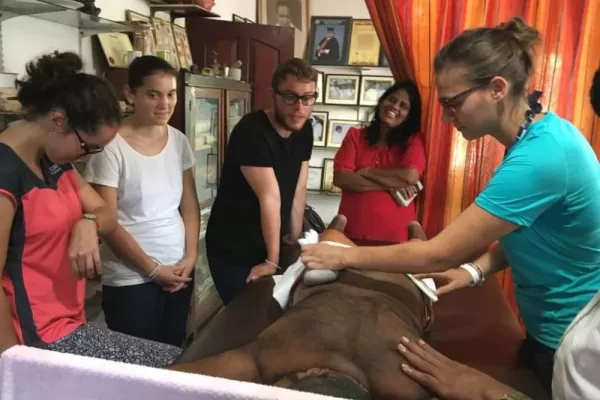
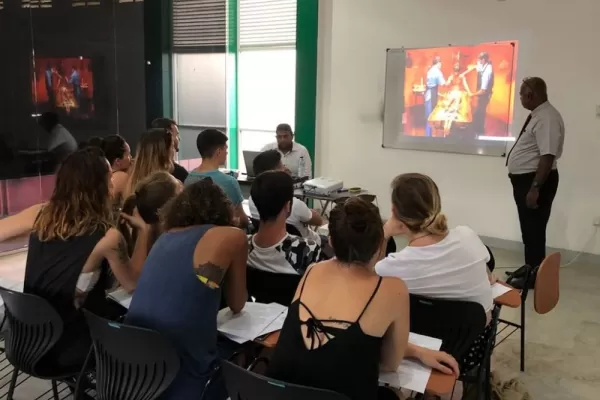
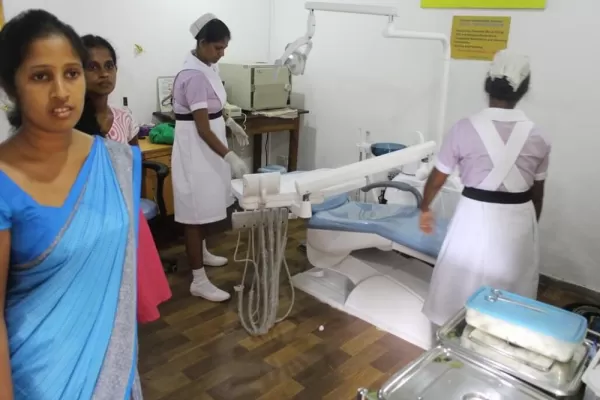

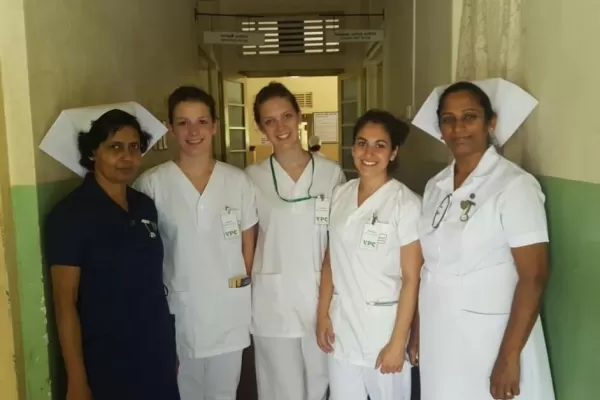
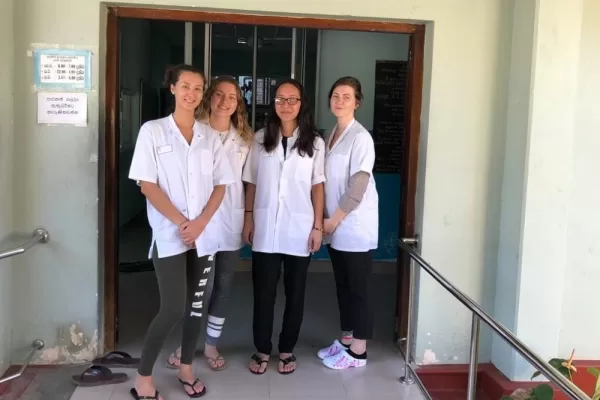
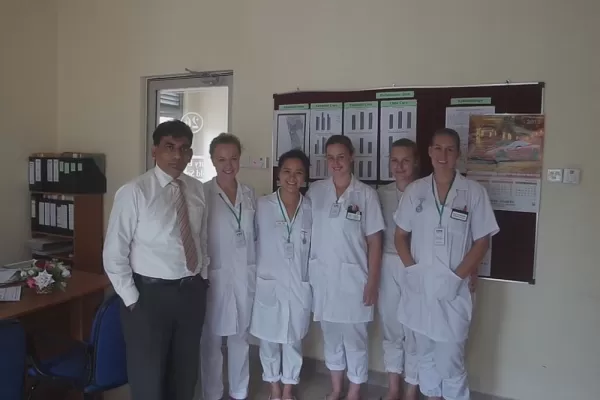
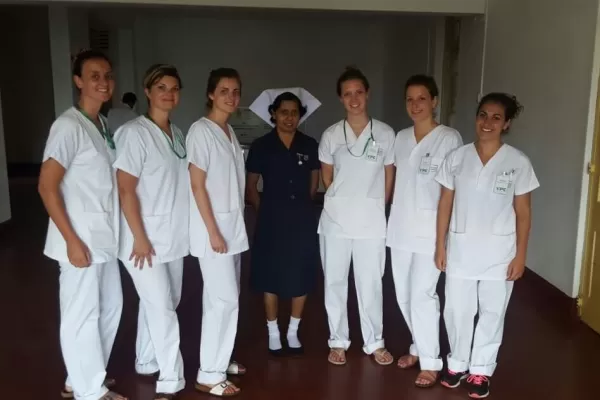
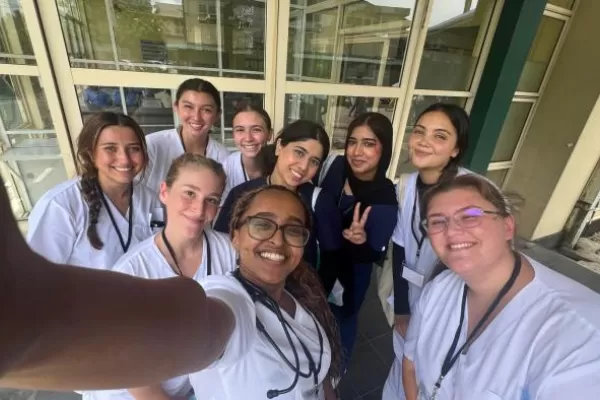
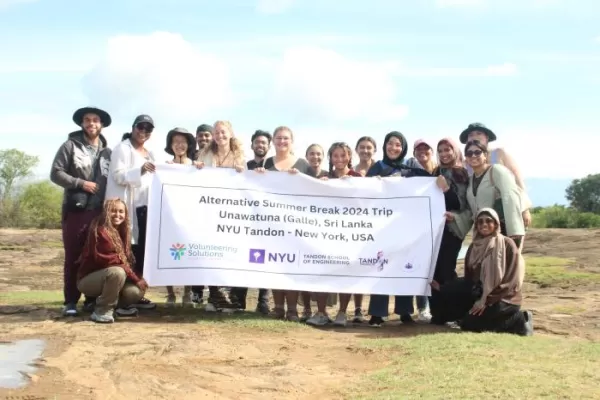
Living
Living
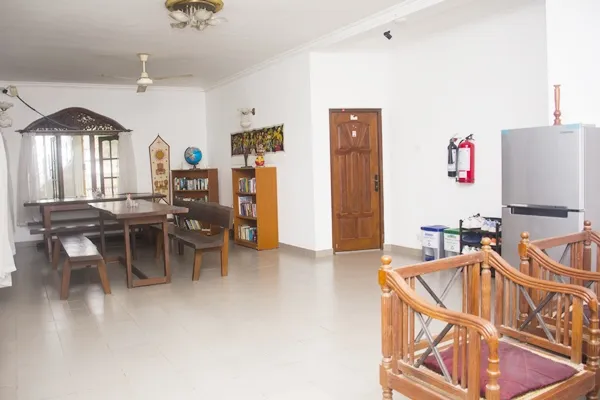

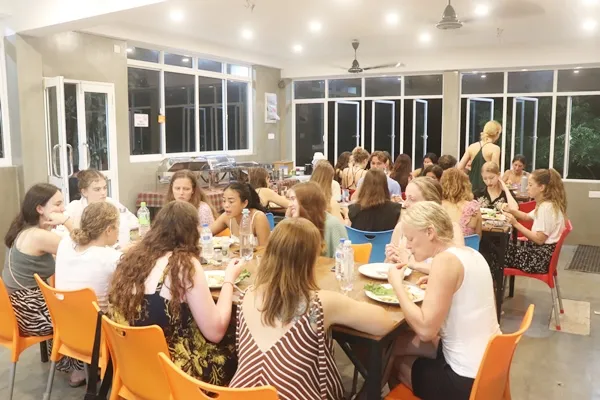
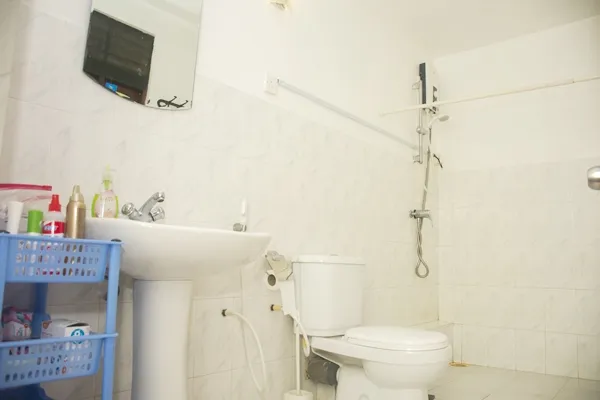
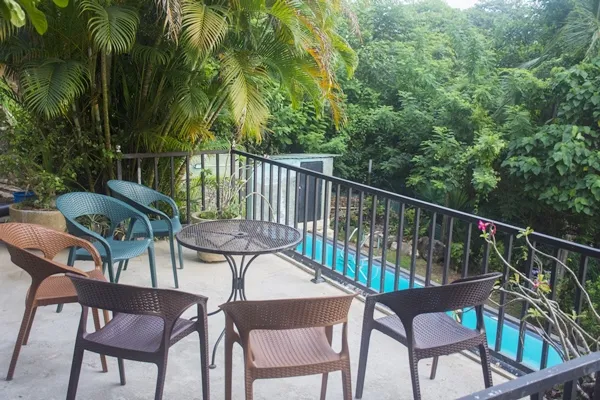
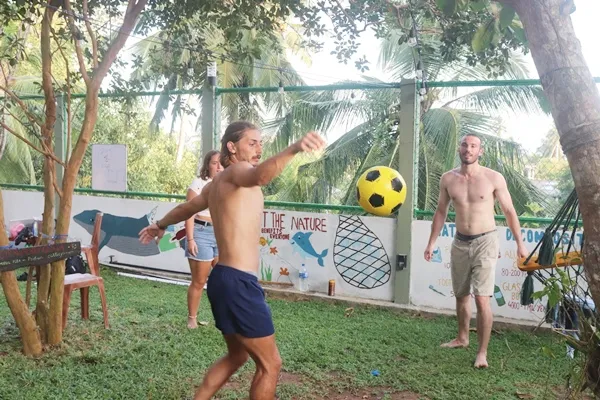
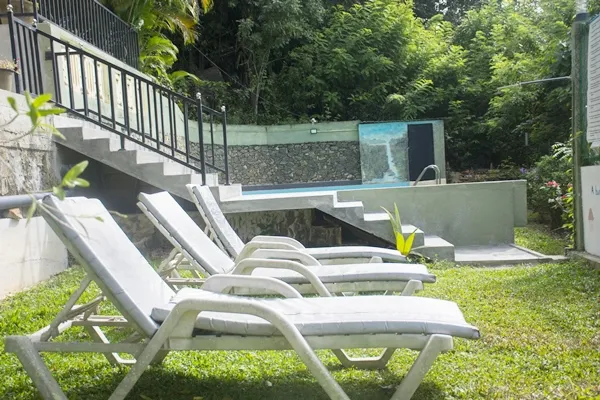

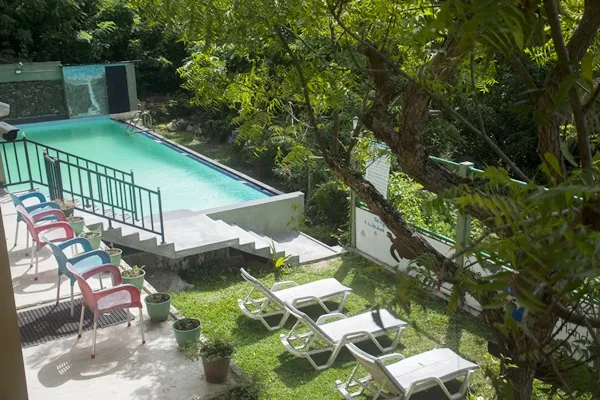
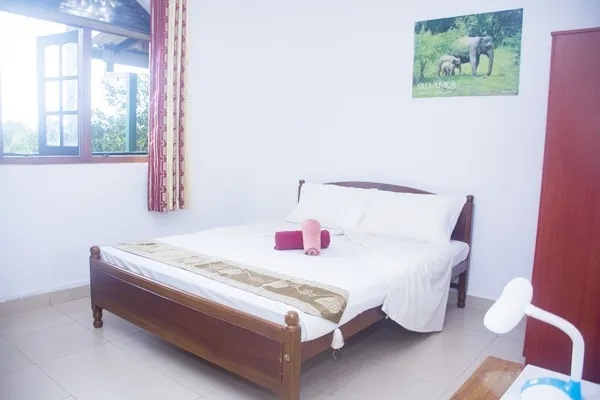
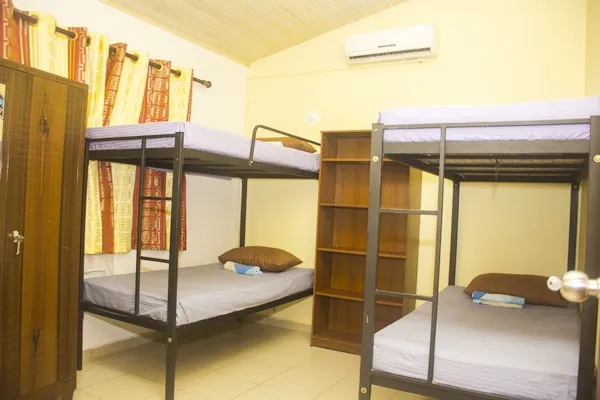
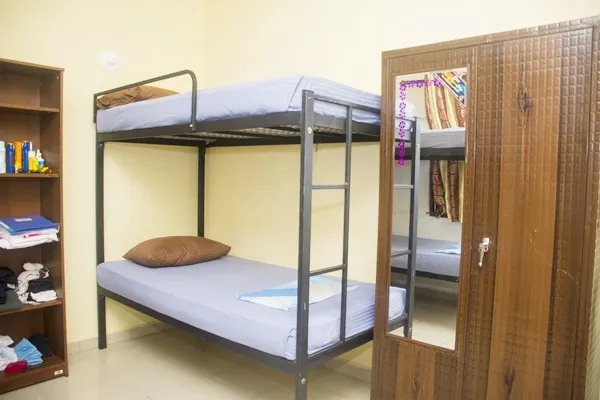
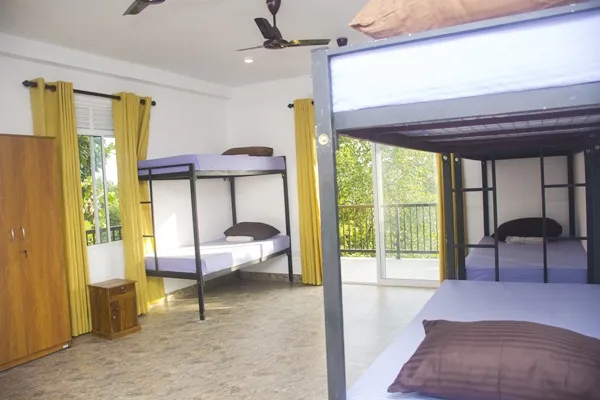
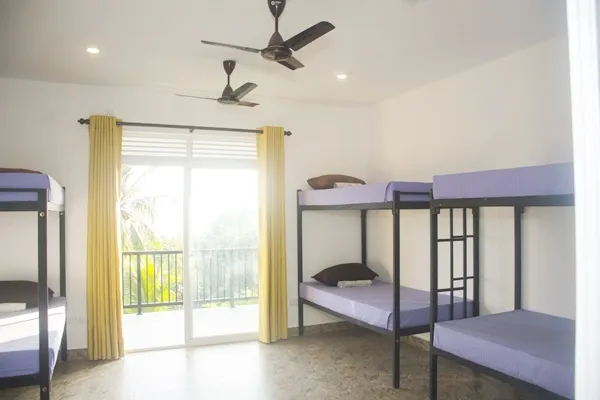
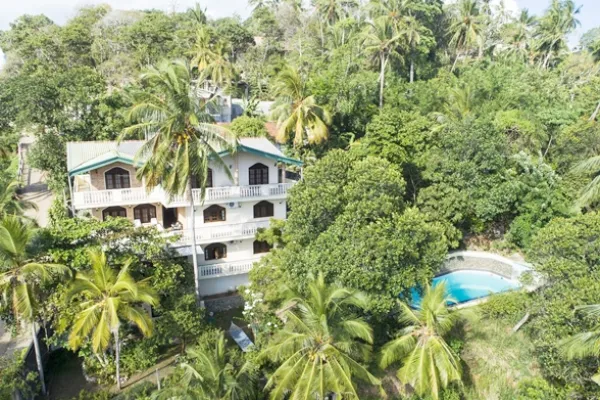
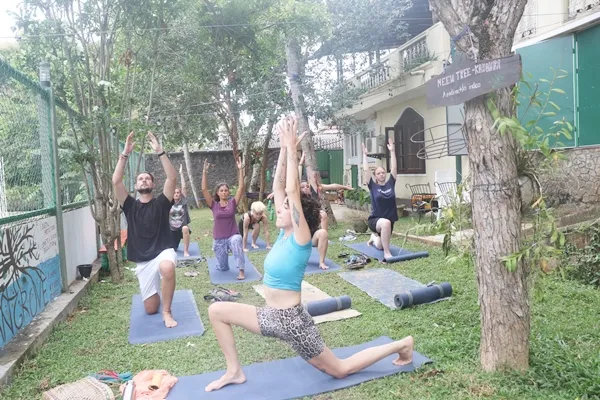
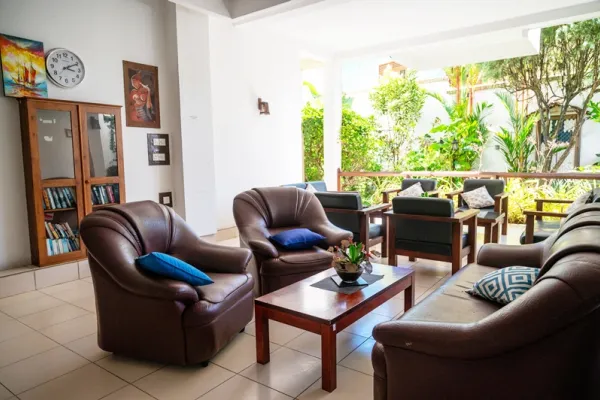
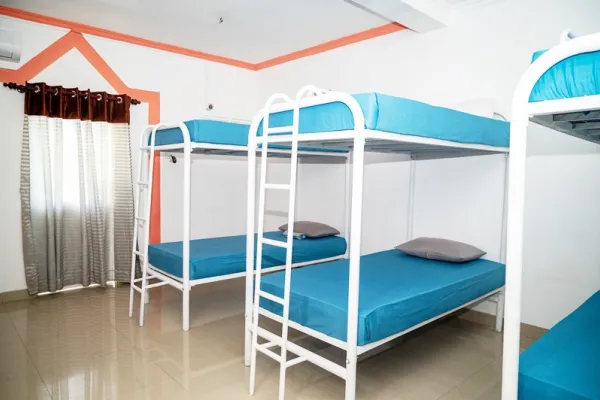
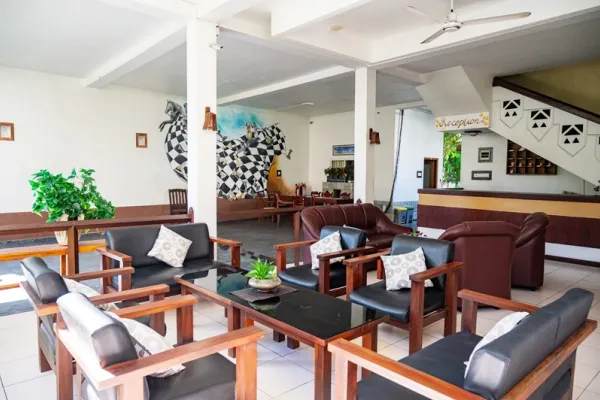
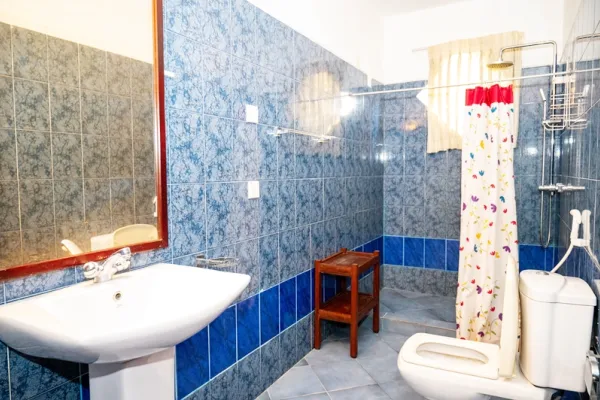
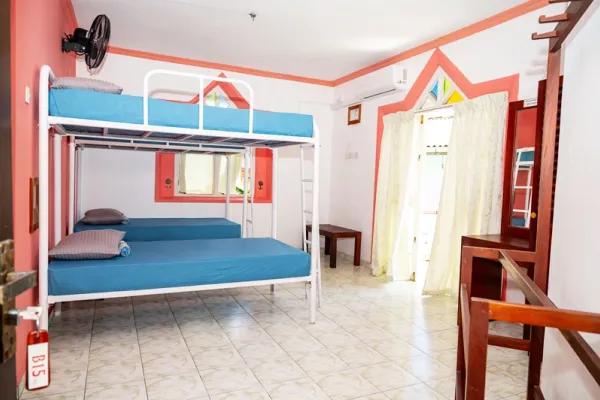
Dates
Dates
January
04
11
18
25
February
01
08
15
22
March
01
08
15
22
29
April
05
19
26
May
03
10
17
24
31
June
07
14
21
28
July
05
12
19
26
August
02
09
16
23
30
September
06
13
20
27
October
04
11
18
25
November
01
08
15
22
29
December
06
13
20
27
January
10
17
24
31
February
07
14
21
28
March
07
14
21
28
April
04
11
18
25
May
02
09
16
23
30
June
06
13
20
27
July
04
11
18
25
August
01
08
15
22
29
September
05
12
19
26
October
03
10
17
24
31
November
07
14
21
28
December
05
12
19
26
Available
Filling Fast
Booked Out
Costs
| Duration |
Program Fee
|
Choose your currency
|
|---|---|---|
| 1 Week | $854 | |
| 2 Weeks | $1074 | |
| 3 Weeks | $1294 | |
| 4 Weeks | $1514 | |
| 5 Weeks | $1734 | |
| 6 Weeks | $1951 | |
| 7 Weeks | $2150 | |
| 8 Weeks | $2350 | |
| Extra Week | $260 |
Please Note: An application fee of is charged over and above the program fee as an application payment. A 5% international banking fee is charged for credit card payments of program fee in USD/AUD.
Included
- 24 hrs Assistance and support from Staff
- Comprehensive Pre- Departure Information
- Airport Transfers on Scheduled Days
- Dedicated volunteer housing with WiFi (shared rooms)
- Orientation and training on arrival
- Breakfast, lunch and dinner all days
- Guaranteed project placement
- Local transportation to projects in private AC van or tuk-tuk
- Experienced bilingual operations team on the ground
- Dedicated staff support from 6 am to 8 pm every day
- 24/7 local emergency support
- Weekly yoga class on a rooftop terrace
- Weekly movie nights on large screen projector
- Monthly bike tour around paddy fields and local villages
- Monthly special BBQ dinner
- Travel & Medical Insurance (Available at an extra cost)
Not included
- Visa Fee
- International Airfare
- Vaccinations
- Any personal expenses
- Additional Local Excursions and Trips
FAQ's
Application and Program Details
-
Are there any necessary requirements to participate in the Sri Lankan volunteer programs?
-
Below are the necessary requirements to participate in the Sri Lankan volunteer projects:
The minimum age requirement for the programs in Sri Lanka is 17 years.
Volunteers participating in the Medical Program should be at least 18-year-old.
Volunteers need to have an open mind and flexible attitude for working in a new and different environment. They should bring energy and enthusiasm to make a difference.
The participant must be in good health. -
Does VolSol provides discount if I choose more than one program or if I am a returning volunteer?
-
If you are planning to come for multiple programs in your trip, you will have to pay the application fees just once. Your application fee is valid for a year's time ( from the date of application). You will not have to pay the application fees again if you come within the mentioned time frame.
For our returning volunteers, $50 discount is provided for the application fee for their next VolSol program. -
Can I volunteer as part of a group?
-
We encourage our participants to volunteer in a group. We take special care in providing you a placement and also customize your itinerary to make sure you get exactly what you are looking for. Also, we can design special group programs for groups of 5 or more. Our programs are designed to be safe, affordable and offer a great group volunteering experience to the volunteers.
In our experience of more than 12+ years, we have enabled and facilitated volunteer program placements for college groups, university groups, high school groups, group of families, group of couples as well as groups of colleagues. -
When should I apply for the volunteer programs in Sri Lanka?
-
As we have limited spots available in our programs and we serve on first come first basis, it is recommended that potential volunteers book their programs well in advance to get confirmed placements. You can book your slot by filling the application form online and pay the application fee. You can pay your program fee later and also, in installments. However, the complete payment should be made 45 days prior to the starting of the program. If you are volunteering in a group, you can also fill a group application form.
-
Does VolSol provides with a reference or a certificate after program completion?
-
Yes, we will provide you with the Certificate after successful completion of your program. The certificate is provided on request.
-
For how many hours will I volunteer every day?
-
Volunteers usually work for 5 to 6 hours a day depending on their program. However, volunteers need to be flexible, open minded and understand that work requirements can alter at times.
-
How long will it take to process my application? Will my application be accepted?
-
After you complete your application, your personalized ‘My Account’ will be activated.You will need to upload your CV/Resume along with your photo in the same. Our backend team and the placement site takes around 10-12 days to review your application. After we review your CV and documents, your booking is confirmed and booking confirmation is updated in your ‘My Account’. Some projects need a mandatory criminal background check and the same is mentioned in the project info of your program. Approval of your application depends on your qualification and eligibility criteria for each project.
-
When do I need to arrive in Sri Lanka for my program? What will happen once I arrive in the country ?
-
All volunteers need to arrive at Bandaranaike International Airport (CMB) in Colombo, Sri Lanka, on the starting date of their project. Volunteers are picked from the airport by the local coordinator or representative and are transferred to their accommodations. Accommodation will be provided in the volunteer house located near your placements.
A short orientation is given after arrival about the city and placements. The volunteers are also taken for a short tour of Colombo before they start with their program. However, the tour depends on the arrival time of your flight.
Health and Safety
-
What immunizations/vaccinations will I need?
-
We recommend you to consult your physician or travel doctor before traveling to Sri Lanka. However, we recommend you take general vaccinations such as:
Hepatitis A and B
Typhoid -
Do I need to buy a health insurance?
-
Yes, for all volunteers it is mandatory to have a travel medical insurance. To provide the best option to our participants, we offer comprehensive insurance coverage in collaboration with a leading insurance provider.
-
Are there any other things that I need to be careful about?
-
Considering the fact that Sri Lanka is a tropical country, the weather is mostly hot and humid. For people traveling from European and North American countries, it might seem to extremely hot during the days and sultry at night. We would advise you to consume a lot of water and protect yourself from the sun in whichever way possible. Carry an umbrella.
You can consult your doctor once, before traveling to Sri Lanka. -
How safe is Sri Lanka in general ?
-
Sri Lanka is one of the popular tropical destination in Asia and attracts travelers from all around the world. The locals are friendly and helpful as well, however, it is recommended to consult your in-country coordinators before you step out alone or go to any other locations in Sri Lanka. Also, it is recommended to be with your group whenever you venture out or stay out late in the night. It is strongly recommended to follow the safety rules and regulations provided by the in-country coordinator.
Accommodation and Living
-
Would I have free time during my program ? Can I do sightseeing during my program ?
-
Depending on your project placement, you will get free evenings and weekends to explore in and around the city. You can utilize the evening time to visit local markets and other places around your project location. Make the most of your weekends by exploring Sri Lanka to the fullest.
We encourage our volunteers to travel. We have designed various weekend tours which can be booked under the ‘Add-on Tours’ section in your ‘My Account’. Your in-country coordinator will also help you book and organize the tours once you are in Sri Lanka.
-
Where can I change my money in Sri Lanka ? Are there ATMs in Sri Lankan cities?
-
You can change money at any bank or at the airport by showing your passport. There are ATMs located all around the city (Galle, Kandy, Ambalangoda and Kegalle) as well.
-
Which all places can I explore during my trip?
-
Places like Sinharaja Forest Reserve, Rumassala Mountain, and Galle fort are major attractions in Galle, and Kegalle is a city of ancient architecture and natural beauty. Volunteers are free to plan quick getaways and explore Sri Lanka during the weekends.You can also relax at the beachside and enjoy the taste of the delicious seafood.
-
How do I get to the accommodation and the program location?
-
Your coordinator will meet you at the airport and will take you to your accommodation and introduce you to our team and other volunteers. You will then be provided with the orientation covering areas like culture, customs, safety, locations, placement, greetings, local transportation etc.
On the first day of work, the coordinator will guide you to your project site. -
Can I know more about accommodation and food arrangements?
-
Volunteers joining the programs in Galle, Sri Lanka, get to stay in the quaint Unawatuna neighborhood, overlooking the famous Unawatuna Beach and the turquoise waters of the Indian Ocean. Participants stay in one of the two volunteer homes located in close proximity to each other. The larger volunteer house has 13 bedrooms with ensuite bathrooms.Most of these rooms have ocean views! There's a private 40-foot outdoor swimming pool surrounded by tropical greenery. The house also has 3 kitchens as well as 3 living/common rooms (one each per floor), a prominent dining area, and a private outdoor garden with seating/lounging areas.
The office is located on the ground floor of the house near the main entrance – this is where the local team operate from every day. The house is located in a peaceful, nature-filled neighborhood adjacent to a small Buddhist temple (nestled away from the main tourist areas). To ensure the safety and security of the participants, there are CCTV cameras installed, and an in-house security guard for night-time surveillance. Hot water and high-speed Wi-Fi are there and you can opt for air-conditioning and laundry facilities at an additional charge.
Other than that, we also provide single/double/family private room upgrades at extra charges. The beach is just about 5 minutes walk from the stay and you can reach the Galle Fort in about 15 minutes.If you have special dietary requirements, please mention the same in your application form.
-
Are there more expenses once I arrive in Sri Lanka ?
-
Your program fee covers your accommodation, airport pick-up, orientation, pre-departure booklet, and 24x7 in country staff support. You will need to cover your personal expenses, such as traveling, telephone, the internet, shopping, sightseeing, return airport drop, weekend tours etc. You should carry around $50 - $60 per week for your basic personal expenses, such as water, local transport, phone etc.
Flights and Visa
-
Will Volunteering Solutions help with Visa?
-
Volunteers traveling to Sri Lanka need to obtain an Electronic Travel Authorization (ETA) prior to their arrival or on their arrival in Sri Lanka. You can then obtain a Visa on Arrival in Sri Lanka for 30 days.
Volunteers can apply for ETA online and the approval of the same will be communicated via email.
Volunteers can be provided with the supporting documents if needed. More information will be provided once you enroll for the program. -
What are the recommended airlines to fly to Sri Lanka ?
-
The Bandaranaike International Airport (CMB) in Colombo is well connected with all major airports across the globe and flights are easily available. The recommended airlines are:
Srilankan Airlines
Air India
Mihin Lanka
Spicejet
Emirates
There are frequent in-country flights from Colombo to Galle and Kegalle as well.
Connect with Past Volunteers
-
How can I connect with past Volunteering Solutions Sri Lankan alumni as well as other former and current volunteers ?
-
We encourage volunteers to connect with former Volunteering Solutions participants and also other program participants joining our projects. You are recommended to join the Volunteering">https://www.facebook.com/VolunteeringSolutions/">Volunteering Solutions Facebook Page or Facebook">https://www.facebook.com/groups/volunteeringsolutions/">Facebook Group to connect with other participants and our team.
To read alumni interviews from past participants, visit the Meet">https://www.volunteeringsolutions.com/meet-a-volunteer">Meet a Volunteer section on our website


























